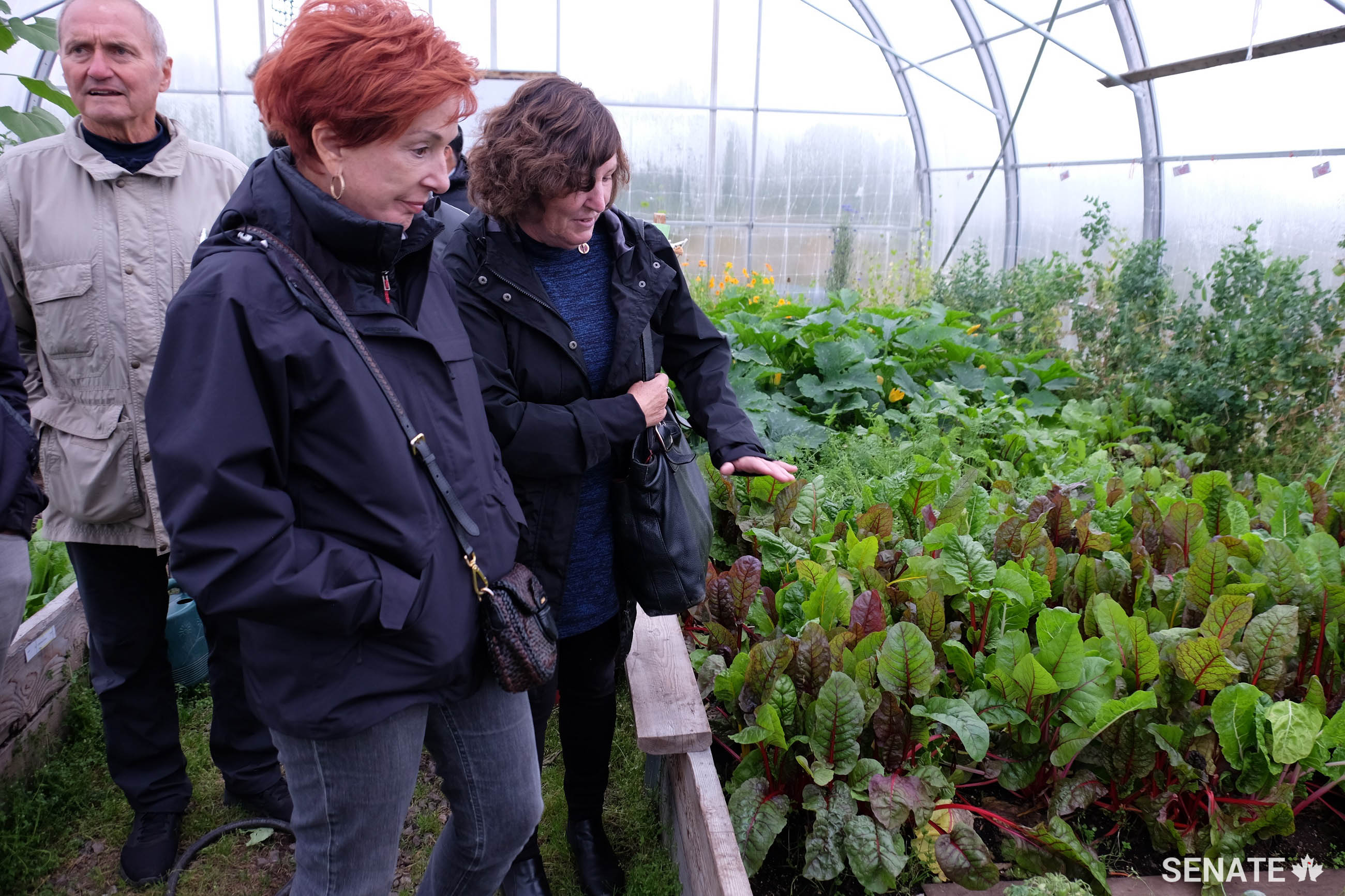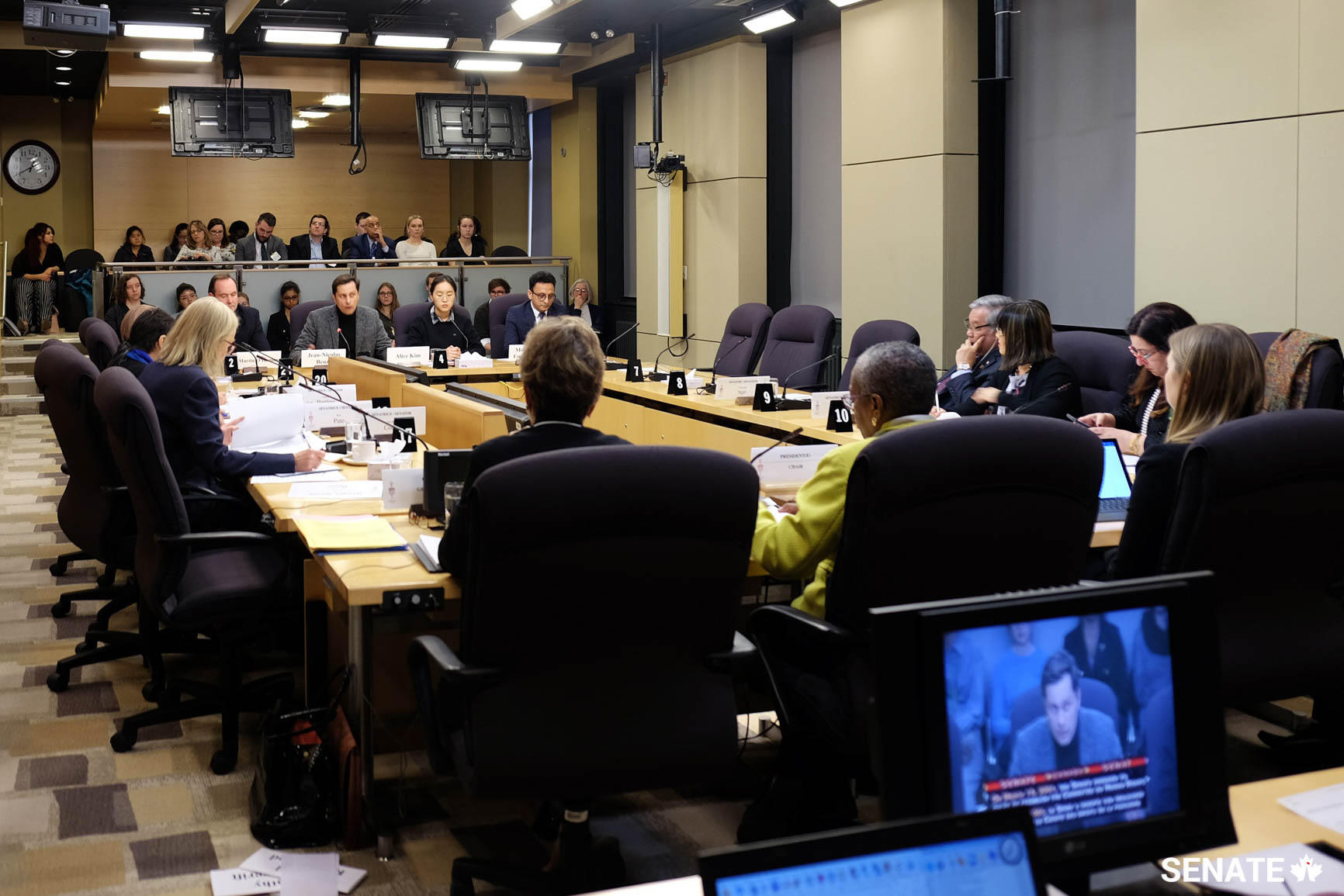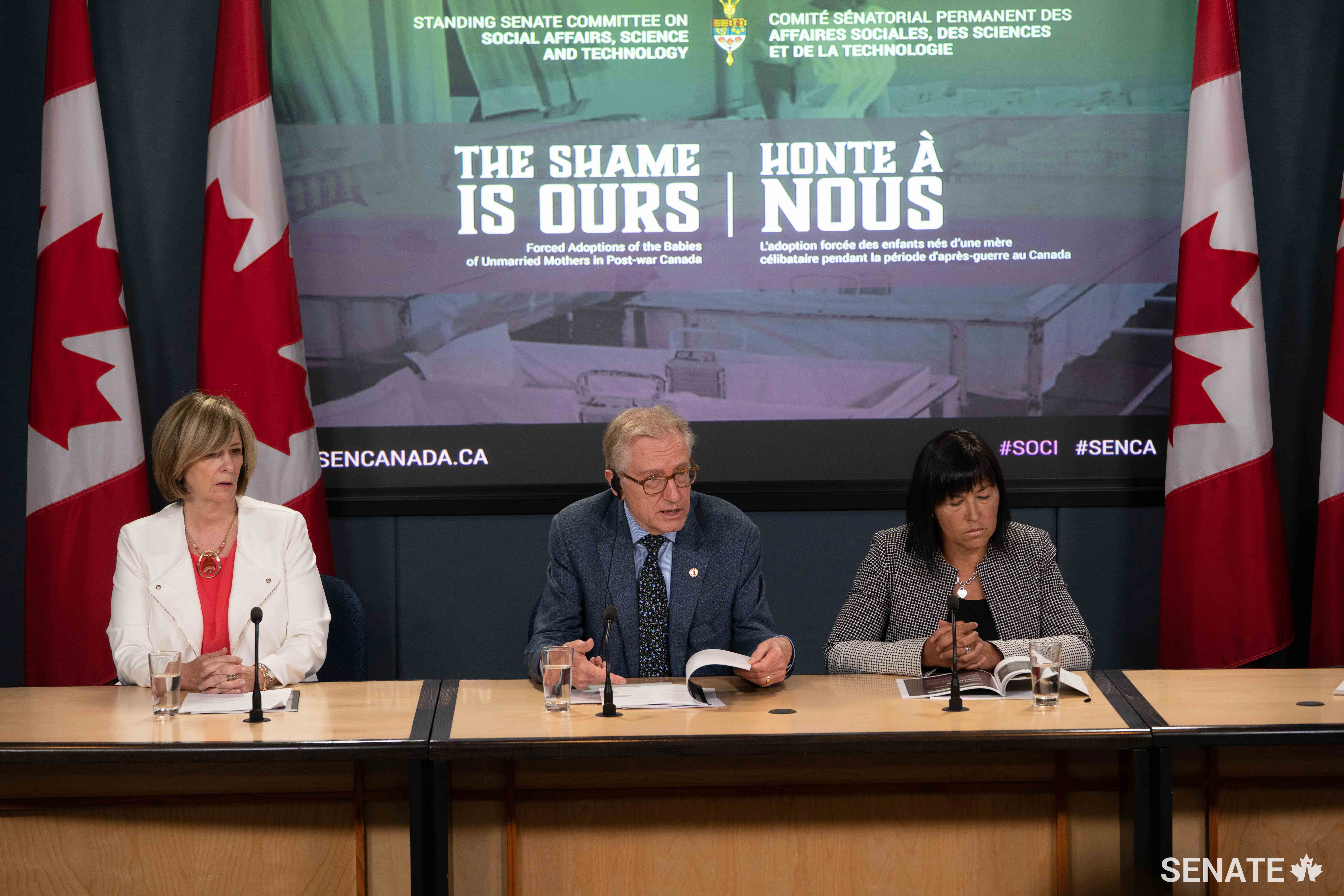How witnesses and fact-finding missions shape committee reports

Senators come from all walks life. Among them are doctors, lawyers, journalists, teachers, entrepreneurs, and athletes, and all of whom bring unique skills and experiences to the table when they carry out their work inside and outside the Red Chamber. One way those skills are put to use is through Senate committees.
One of the key functions of a committee is to conduct special studies into issues affecting Canadians. When they are finished those studies, committees produce a report on their findings. Recent examples include a report on maritime search and rescue operations and a report on Canadians’ cybersecurity and privacy.
Reports often include a review of the testimony the committee has received from various specialists, government officials, groups and members of the public, as well as the views of committee members and recommendations to the federal government that are informed by the committee’s research and expert-witness testimony. Interim reports are sometimes published to provide updates on a study’s progress before a final report with recommendations is ready.
Sometimes, a committee’s research takes senators outside of the Parliamentary Precinct.
Fact-finding missions and public hearings
On fact-finding missions, committee members travel across Canada and abroad for site visits and face-to-face meetings with organizations or individuals. Meetings held during fact-finding missions are less formal than public hearings and there are no transcripts, but the information gathered is still used for the committee’s study.
Public hearings held outside of the Parliamentary Precinct include all the formality of meetings held on Parliament Hill and the proceedings are transcribed and published in both official languages. Official public meetings cannot be held outside of Canada because they are beyond Parliament’s jurisdiction.
Witnesses
Hearing from and questioning witnesses is a central role of senators in committee. In order to give committees all the tools they need to get the most information they can, the Senate gives them considerable authority, including the rarely used power to summon a person or documents for the purpose of a study. Most witnesses appear voluntarily. If a person refuses to appear or hand over material, the committee could report it to the Senate with a recommendation that the Senate compel the witness to attend or provide certain information, as the case may be. If the witness were to refuse the summons of the entire Senate to attend one of its committees or provide certain information, the Senate could find the individual or organization in contempt.
On average, Senate committees hear from more than 1,300 witnesses per year, providing a direct link between Parliament and the Canadian public. Witnesses can include ministers, public servants, academics, companies, charitable organizations, community groups and members of the public.
Releasing a report
Once a committee has finished hearing from witnesses, members prepare a written report to reflect the study’s findings. Members usually try to come to a consensus on the recommendations in the final report, but in some cases the opinion of the minority of the members is included as well. After adopting the report on a special study, the committee can table it in the Senate.
A committee can also present a report when a decision is required by the Senate. This usually happens for reports on bills, committee budgets and requests for power by a committee, where a final decision of the Senate is required. The report is read aloud by the clerk and a motion is moved so it can be placed on the Orders of the Day for a future sitting. Senators must move a motion to adopt a report before the first debate.
Tabling a report is done when the subject matter is for the information of the Senate and a final decision is not required.
Click here to learn more about Senate committee reports.





